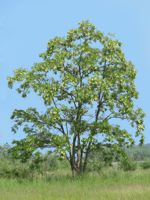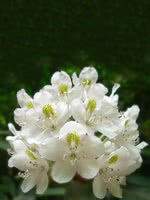Mon-Fri 9am - 5pm Mountain time
Black Locust vs White Lights Rhododendron (Azalea)
Robinia pseudoacacia
Rhododendron x White Lights
SOLD OUT
CUSTOM GROW
Black Locust is an attractive tree. Its distinctive leaves are made of about a dozen bright green leaflets. It also notable for its fragrant white flowers, which smell of citrus.
Black Locust can grow in many situations, but prefers dry areas with lots of sun. It is robust and is an excellent choice for establishing shade in dry, open areas.
Important note: Much of the Black Locust is toxic to humans and livestock, including seeds, bark, and leaves.
White Lights Rhododendron is part of the Northern Lights Series, cold hardy, and deciduous. In late spring you'll be drawn to its fragrant white blooms. In fall, the foliage turns a beautiful purple-bronze color. Pruning is recommended after the flowers are spent to control the size and shape of this shrub.
White Lights Rhododendron should be your next hedge/screen, or plant it on its own as a specimen plant.
Black Locust Quick Facts
White Lights Rhododendron (Azalea) Quick Facts
Toxicity: All parts of a rhododendron bush, including the leaves, stems and blooms, are toxic to cats, dogs, and horses.

